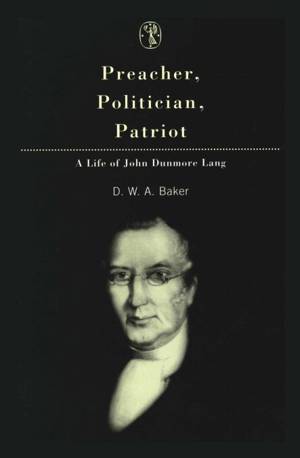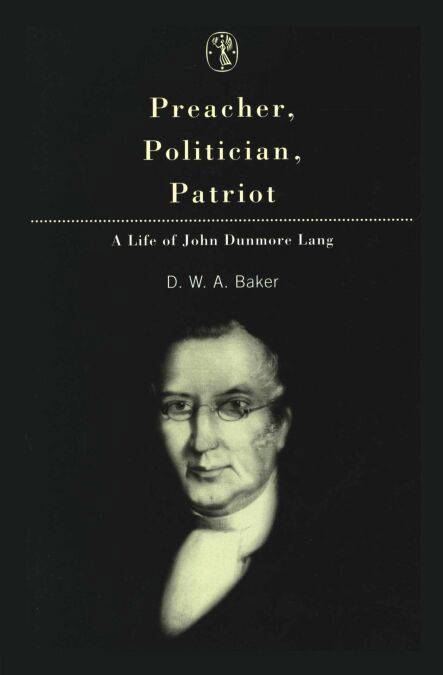
Je cadeautjes zeker op tijd in huis hebben voor de feestdagen? Kom langs in onze winkels en vind het perfecte geschenk!
- Afhalen na 1 uur in een winkel met voorraad
- Gratis thuislevering in België vanaf € 30
- Ruim aanbod met 7 miljoen producten
Je cadeautjes zeker op tijd in huis hebben voor de feestdagen? Kom langs in onze winkels en vind het perfecte geschenk!
- Afhalen na 1 uur in een winkel met voorraad
- Gratis thuislevering in België vanaf € 30
- Ruim aanbod met 7 miljoen producten
Zoeken
€ 16,15
+ 16 punten
Uitvoering
Omschrijving
John Dunmore Lang had a finger in most pies in colonial New South Wales. He arrived in 1823, a young Presbyterian minister in search of a pulpit. Fifty years later his funeral befitted a founding father not only of the Presbyterian Church in Australia but of the nation itself.
He established the Scots Church and his own secondary school, the Australian College. He was a populist politician whose republican and democrat leanings strengthened during a quarter-century in the Legislative Council. He ran three newspapers. He circled the globe eight times; one of his many missions was to recruit clerics, along with respectable tradesmen and small farmers from the British Isles—anywhere but Papist Ireland. He wrote a book or two during most voyages.
And that is not the half of it. Volatile and vindictive, Lang loved a fight, answered only to God and was never still. Towards the end of a life peppered with church rifts, he was locked out of the very church he had built. The financial dealings of this fierce preacher of moral rectitude were labyrinthine and shady. They twice landed him in gaol—as did a willingness to libel opponents. Yet he was a hero to ordinary workers and a perceptive critic of the treatment of Aboriginal people.
Lang is a problematic giant from our colonial past. Don Baker, his cool, authoritative, gently ironic biographer, considers him 'almost as large a figure as he claimed to be'.
He established the Scots Church and his own secondary school, the Australian College. He was a populist politician whose republican and democrat leanings strengthened during a quarter-century in the Legislative Council. He ran three newspapers. He circled the globe eight times; one of his many missions was to recruit clerics, along with respectable tradesmen and small farmers from the British Isles—anywhere but Papist Ireland. He wrote a book or two during most voyages.
And that is not the half of it. Volatile and vindictive, Lang loved a fight, answered only to God and was never still. Towards the end of a life peppered with church rifts, he was locked out of the very church he had built. The financial dealings of this fierce preacher of moral rectitude were labyrinthine and shady. They twice landed him in gaol—as did a willingness to libel opponents. Yet he was a hero to ordinary workers and a perceptive critic of the treatment of Aboriginal people.
Lang is a problematic giant from our colonial past. Don Baker, his cool, authoritative, gently ironic biographer, considers him 'almost as large a figure as he claimed to be'.
Specificaties
Betrokkenen
- Auteur(s):
- Uitgeverij:
Inhoud
- Aantal bladzijden:
- 240
- Taal:
- Engels
Eigenschappen
- Productcode (EAN):
- 9780522864984
- Verschijningsdatum:
- 17/10/2016
- Uitvoering:
- E-book
- Beveiligd met:
- Adobe DRM
- Formaat:
- ePub

Alleen bij Standaard Boekhandel
+ 16 punten op je klantenkaart van Standaard Boekhandel
Beoordelingen
We publiceren alleen reviews die voldoen aan de voorwaarden voor reviews. Bekijk onze voorwaarden voor reviews.









